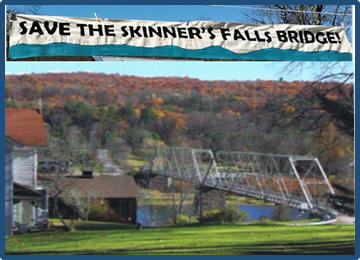Don't Use Our Water for Fracking
April 9, 2014Sponsor Kills Oil Pipeline Bill
April 13, 2014By John Futty, The Columbus Dispatch, April 9, 2014
An important first step to challenge what has become a wholesale give-away of Ohio to the drilling interests
A Franklin County judge has ruled that a Guernsey County couple can move forward with a lawsuit that seeks to stop fracking beneath and around Seneca Lake.
The couple filed the suit in October, eight months after the Muskingum Watershed Conservancy District approved a $40.3 million lease with a Colorado-based drilling company for underground mineral rights to 6,400 acres, including the lake.
Common Pleas Judge Tim Horton ruled on Monday that the couple, Leatra Harper and Steven Janstro, have established that they “have suffered or are threatened with direct and concrete injury” to their health, to the environment where their property lies and to the property’s value.
The decision gives them what is known as legal standing to pursue the lawsuit against the district, the Ohio Department of Natural Resources and the drilling company, Antero Resources.
The couple ultimately wants the court to find that the watershed district and the state acted improperly in approving the project.
“We’re gratified, but it’s a very preliminary round in this bout,” said Terry Lodge, the couple’s Toledo attorney.
He said it has become increasingly difficult in recent years for plaintiffs to establish standing in environmental cases involving public agencies.
So difficult, in fact, that Teresa Mills, fracking coordinator for the Buckeye Forest Council, said today that she was “shocked and pleased” by the judge’s decision.
Lodge is unaware of any other Ohio lawsuit challenging a specific fracking operation.
Fracking involves pumping millions of gallons of water, sand and chemicals deep into the ground to shatter shale and free trapped oil and natural gas. More than 660 fracking wells have been drilled in Ohio since 2010.
The judge rejected the defendants’ argument that the couple didn’t have legal standing because their “alleged injuries are speculative and hypothetical.”
Horton noted that Harper and Janstro, who own residential property near the lake and within the district boundary, obtained a 2012 geological study warning that the development of fracking wells in the area would cause toxic contaminants to enter the geological formations affecting what is the third-largest inland lake in Ohio.
The land leased to the drilling company lies in Guernsey and Noble counties, about 80 miles east of Columbus.
The lease does not permit wells to be drilled on district-owned land, but it allows Antero Resources to drill beneath the lake and district land from wells outside the district. Three wells “ have gone under the property to begin production,” said Darrin Lautenschleger, a district spokesman.
The fracking operations will continue despite the litigation, he said.
Lodge said the drilling began before the lawsuit was filed, and he thought that a request for a temporary restraining order to halt the work after the permits had been granted would be unsuccessful.
A spokeswoman for Natural Resources, which granted the drilling permits for the project, said yesterday that the department will not comment on ongoing litigation.
The lawsuit was filed in Franklin County because that’s where the department is headquartered, Lodge said.
Harper has been an anti-fracking activist with the Southeast Ohio Alliance to Save Our Water since 2012. She recently co-founded the nonprofit organization FreshWater Accountability Group.
Filing the lawsuit, she said today, “was a desperate measure during desperate times. The industry is moving so quickly, and ODNR is granting permits left and right without the science. What are citizens left to do?”
Tom Stewart, executive vice president of the Ohio Oil and Gas Association, said the risks associated with fracking have been safely managed through government regulations that the industry welcomes.
The plaintiffs “believe that we should not tolerate any risks” in the name of economic development, Stewart said. “If we all operated that way, this society would stagnate and die.”



